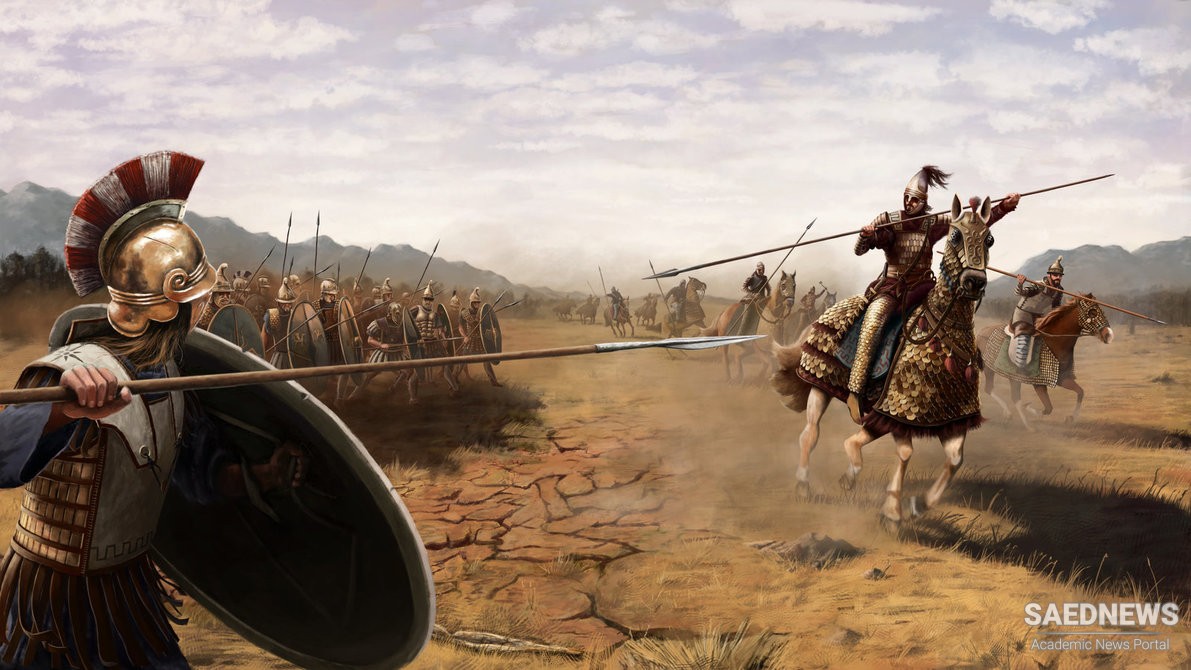About 280 B.C., the nomads from the north succeeded in penetrating the Seleucid territory as far as Tirmidh and Herat. They were expelled by Antiochus I, son and successor to Seleucus I, who also restored the ravaged cities. For instance, he rebuilt the citadel of Marv and raised a rampart of beaten earth and brick (up to 20 metres high and about 270 km. long) which surrounded the Marv oasis. But the wars in the west, particularly with Egypt (280-72 and 260-53), fought over the defence or the expansion of the sea-front of the empire, strained the resources of the west and made the court of Antioch demand more and more help from the provinces of the east. In 273, for instance, the satrap of Bactria had to send 20 elephants for the war against Egypt and thus weakened the defence of his satrapy against the nomadic hordes. Following the death of Antiochus II in 246, a dynastic war broke out in the west between Laodice, the divorced wife of Antiochus II, and Berenice, his widow, who was supported by her brother, Ptolemy III of Egypt. The army in Bactria, led by its general Diodotus, forsook the House of Seleucus, which was now divided against itself; they thought that they could do without further help from the court at Antioch.1 This reasoning proved right. The Greek kings of Bactria, whose riches amazed contemporary observers, defended their territory against the nomads for about 130 years, and "subdued more peoples than Alexander", particularly in India. When Andragoras, the Seleucid satrap of Parthia (roughly western Khurasan), also revolted, and his province was overrun by the nomadic tribe of Parni led by Arsaces, the Greek kings of Bactria and the Seleucid court, in unspoken or agreed collaboration, succeeded in blocking the expansion of the Arsacids. For some eighty years the Arsacids of Parthia remained local dynasts who were continually embroiled in wars with their neighbours. The court of Antioch repeatedly tried to regain the lost Far East. Again and again new conflicts or dynastic struggles in the west compelled the Seleucid kings to break off successful oriental campaigns and go back to Syria. Antiochus III alone succeeded in re-establishing his authority, albeit nominally, over Bactria and the Far East (209-5). He won the title of the "Great King", and the eastern booty allowed him to defeat Egypt and to acquire Palestine and Phoenicia in 200 B.C. But soon he became involved in a war with Rome, lost it in 189, and had to surrender western Asia Minor. All that he had recovered in the east was soon lost again. Yet, western Iran, from Ecbatana to the Persian Gulf, remained loyal, though in 223, and again in 162, the Macedonian generals in Media grasped at the royal diadem. New dynastic struggles in Syria, however, delivered Media, some time after 148 B.C, and Babylonia, in 141 B.C, to the Parthians.


 Development of Seleucid Empire in Iranian Plateau
Development of Seleucid Empire in Iranian Plateau














































